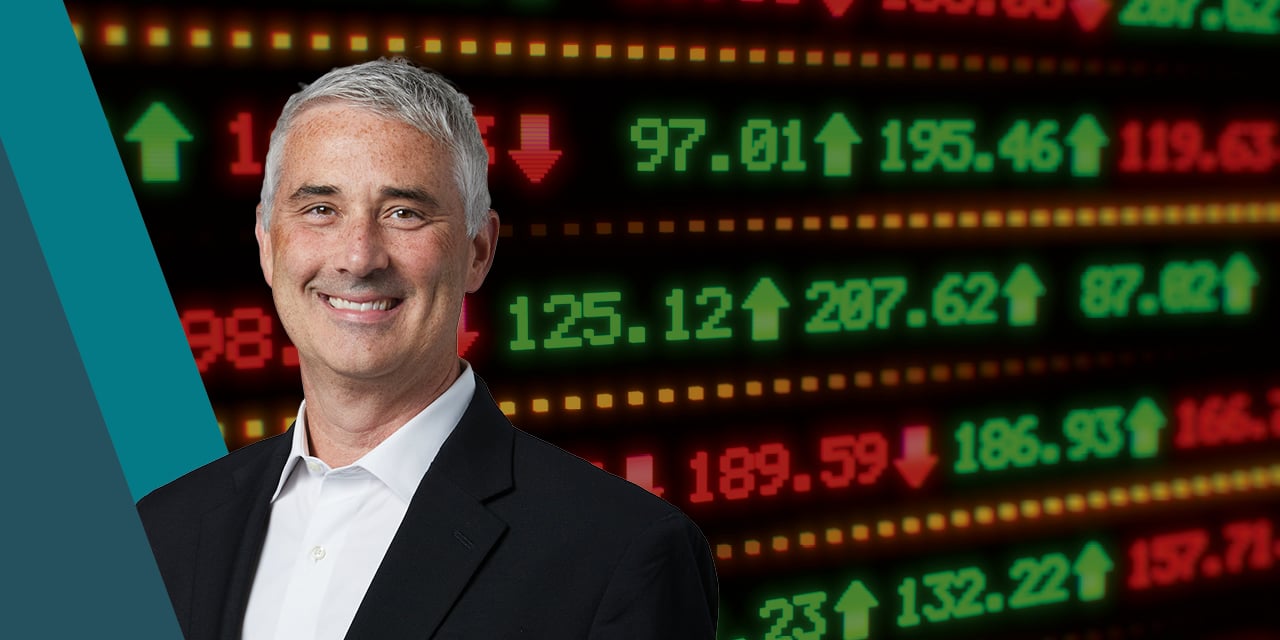
In the Markets Now: Taking Action
The 2024 presidential election is now in the rearview mirror, but the investing implications – both looking backward and forward – remain stark. What can this election tell us about the many yet to come?
On Investing Around Elections
Diving left or right. In soccer, a penalty kick is a scenario in which a player is allowed to take a shot at the goal while it is defended by only the other team's goalie. Penalty chances are rare but impactful, as goalies are massively disadvantaged in these situations—players typically score at an 80%+ rate. In fact, because of the proximity of the shot (11 meters), goalies largely have to choose their action before they can even observe the direction of the kick, with nearly all opting to dive either left or right. However, research by a group of professors has called the strategy of diving—the widely accepted norm for goalies —into question. Their analysis of 286 penalty kicks in top matches worldwide shows that the optimal strategy for goalies is not to dive, but rather, to stay still in the goal’s center. This would have maximized the number of saved shots across the studied sample. So why do goalies dive? The researchers attribute it to an “action bias”—a tendency to favor action over inaction in order to gain a sense of control over a situation – even if the alternative (inaction) yields a better result (in this case, winning).
Action bias occurs when investors feel a need to do something—anything—in the face of a sizeable unknown. Humans are hardwired to despise uncertainty (studies have shown humans are actually more stressed when an outcome is uncertain than when a negative outcome is guaranteed), and the desire to exert control over our environment when things feel unsteady can be overwhelming. Unfortunately, this impulse often plays out in investors’ portfolios—usually, to sell stocks or exit the market—at a time in our history where changes can be made as quickly and easily as ever. As with the goalies mentioned above, however, this action far more often than not leads to a worse result.
Never was this urge more apparent than in the leadup to the election. Despite the S&P 500 being up over 20% year-to-date through October, the anxiety on both sides of the aisle was palpable in my hundreds of conversations with advisors, clients, and friends—and the urge to make The Big Mistake (i.e., letting one’s feelings about political candidates and election noise impact investing decisions) weighed heavily. In both 2016 and 2020, however, the S&P 500 rallied leading up to the elections and rallied again in their aftermath—averaging an 11% return over the subsequent 3 months and never dropping to pre-election levels. It is early yet, but the 2024 post-election rally has been similarly sharp and swift.

Companies are constantly adapting. The urge for portfolio tinkering in the face of macro uncertainty also ignores all the work that’s already been done to ensure long-term investing success. Investing in stocks implies faith that those companies will grow their profits over time (leading to a higher share price) and, presumably, that they can grow profits through all sorts of different environments, tax regimes, administrations, and geopolitical backdrops. Companies are not static—they are constantly transforming and adapting to be as profitable as possible in whatever environment they find themselves in. When the Covid-19 pandemic hit, corporate leaders didn’t throw in the towel—they adapted with work-from-home policies and carry-out meals and new products for a trapped-at-home populace. Investors are rewarded by this profit motive over time.
Inaction might be the right action. Further, your financial plan and overall portfolio were almost certainly built for a long-term time horizon, with the built-in aim of withstanding different political and economic environments to help you reach financial goals that might be 10 or 20 presidential administrations in the future. Looking ahead, the electorate is likely to remain tightly split, with hotly contested elections and contentious rhetoric testing our resolve just the new normal. So, when the impulse to dive hits again in 2028 (and in 2032, and 2036), remember that winning could rely on standing your ground in the center.
Disclosures
This is not a complete analysis of every material fact regarding any company, industry or security. The opinions expressed here reflect our judgment at this date and are subject to change. The information has been obtained from sources we consider to be reliable, but we cannot guarantee the accuracy.
This report does not provide recipients with information or advice that is sufficient on which to base an investment decision. This report does not take into account the specific investment objectives, financial situation, or need of any particular client and may not be suitable for all types of investors. Recipients should not consider the contents of this report as a single factor in making an investment decision. Additional fundamental and other analyses would be required to make an investment decision about any individual security identified in this report.
For investment advice specific to your situation, or for additional information, please contact your Baird Financial Advisor and/or your tax or legal advisor.
Fixed income yield and equity multiples do not correlate and while they can be used as a general comparison, the investments carry material differences in how they are structured and how they are valued. Both carry unique risks that the other may not.
Past performance is not indicative of future results and diversification does not ensure a profit or protect against loss. All investments carry some level of risk, including loss of principal. An investment cannot be made directly in an index.
Copyright 2024 Robert W. Baird & Co. Incorporated.
Other Disclosures
UK disclosure requirements for the purpose of distributing this research into the UK and other countries for which Robert W. Baird Limited holds an ISD passport.
This report is for distribution into the United Kingdom only to persons who fall within Article 19 or Article 49(2) of the Financial Services and Markets Act 2000 (financial promotion) order 2001 being persons who are investment professionals and may not be distributed to private clients. Issued in the United Kingdom by Robert W. Baird Limited, which has an office at Finsbury Circus House, 15 Finsbury Circus, London EC2M 7EB, and is a company authorized and regulated by the Financial Conduct Authority. For the purposes of the Financial Conduct Authority requirements, this investment research report is classified as objective.
Robert W. Baird Limited ("RWBL") is exempt from the requirement to hold an Australian financial services license. RWBL is regulated by the Financial Conduct Authority ("FCA") under UK laws and those laws may differ from Australian laws. This document has been prepared in accordance with FCA requirements and not Australian laws.


